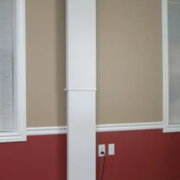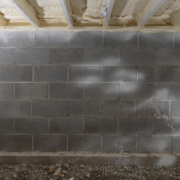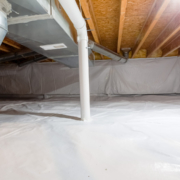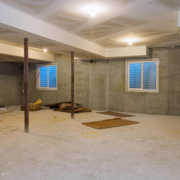What To Do When You See Foundation Cracks In Cinder Block Walls – Atlanta, GA
At one point, cinder block was a popular material in homes. This type of material is much lighter than solid concrete and does provide good protection from the elements. However, cinder block also has many flaws of its own. Due to its delicate nature, it is very prone to cracking. Cracks in your cinder blocks should not be taken lightly.
Cinder block walls are typically found in older homes. Over the years, the exposure to wet weather and extreme temperatures may negatively affect the structure of these blocks. If you choose to ignore foundation cracks in your cinder block, you risk having the material completely collapse.
- Make note of the location
- Be sure to make note of every crack you find in your cinder block walls. This will allow you a better chance of monitoring any changes in the size of the cracks. While most cracks begin as hairline cracks, they can quickly grow into something more damaging. Repairing cracks early on will save you both time and money.
- Look for structural damage
- Cinder blocks don’t always present damage in the same way as other foundation cracks They are more likely to bow inward. Look for any blocks that are not properly lined up. Check that the joints are even. Over time, the blocks may actually collapse upon themselves.
- Check for water leaks
- Cracks in cinder block may allow water to leak inside your home. If you notice weeping around a crack, there is a high probability of more water damage to your walls. If left alone, mold may begin to grow. Wet cinder blocks are also more likely to fail in the long run. Water leaks should always be noted to a foundation professional.
- Note the shape of the crack
- As stated previously, small hairline cracks are very common in cinder block. However, if you notice thick, longer, horizontal cracks, there is a bigger likelihood of structural damage. Masonry caulk can be used to fill in these cracks, but only as a temporary solution. A foundation expert will be needed to permanently repair the situation.
Cinder blocks are very prone to structural damage as the years pass. All foundation cracks should be noted and inspected by a specialist. The structural integrity of your home is dependent on you repairing these cracks. Ignored cracks will only continue to grow in both width and length, putting you at risk of a total collapse.



